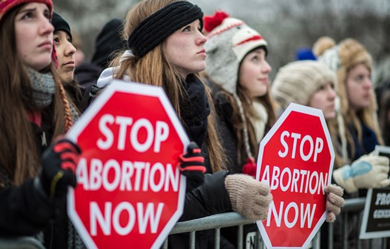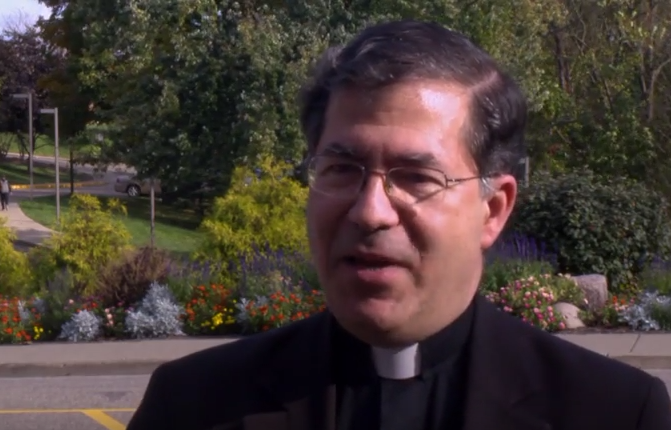Leaders of the anti-abortion movement were not pleased with Donald Trump’s comment yesterday that if abortion is recriminalized, there would have to be “some form of punishment” for women who illegally seek the procedure. The movement has spent years building a narrative that restrictions on abortion are meant to protect women, something that Trump managed to blow up with one comment.
Marjorie Dannenfelser, the leader of the anti-abortion campaign group Susan B. Anthony List, went on NPR this morning in an effort to do damage control, telling “Morning Edition” host Steve Inskeep that “the pro-life movement has never, for very good reason, promoted the idea that we punish women.”
“The aims of the pro-life movement are focused on the woman and the child,” she said, “and to take them together as a goal, as an end, is to preserve both, is what it’s been from the beginning.”
When Inskeep asked Dannenfelser about Trump’s comment that this plan to ban abortion would send women back to “illegal places” for the procedure, Dannenfelser said that Trump doesn’t know “about what is ready and where we are prepared for rolling back abortion laws.”
If abortion were to be banned nationwide, Dannenfelser claimed, women in desperate situations would turn to anti-abortion crisis pregnancy centers rather than the back alley.
Such centers are typically staffed by volunteers, not medical professionals, and many have been found to give misinformation to women.
“As you know, abortion laws are nonexistent pretty much up to the birth of the child,” she claimed. “If those children are allowed to live and a woman is in need of help, there are hundreds of pregnancy care centers across the country, millions of people ready to come to her aid. So, no, I don’t believe that that’s necessary at all, and we’re far more ready now than we were before Roe to help women in situations like that.”
Inskeep asked if dangerous back alley abortions wouldn’t still be the “reality” in “some cases.”
“If a woman feels that that is where she’s been driven, she hasn’t been reached by someone who says, ‘I will help you,’” Dannenfelser insisted. “There’s always a dreadful possibility that something terrible would happen, no matter what a law is, but is incumbent upon the pro-life movement and Americans in general to help a woman who is in that type of need.”
Dannenfelser, who supports banning all abortion with no exceptions, can’t seriously believe that crisis pregnancy centers armed with anti-abortion activists would solve the problem of dangerous illegal abortions. Before Roe, when states had a patchwork of abortion laws, women with resources could often obtain a safe hospital abortion, while too many women without money and connections turned to self-induced abortions or illegal providers. According to a Guttmacher report:
While the problem of unintended pregnancy spanned all strata of society, the choices available to women varied before Roe. At best, these choices could be demeaning and humiliating, and at worst, they could lead to injury and death. Women with financial means had some, albeit very limited, recourse to a legal abortion; less affluent women, who disproportionately were young and members of minority groups, had few options aside from a dangerous illegal procedure.






